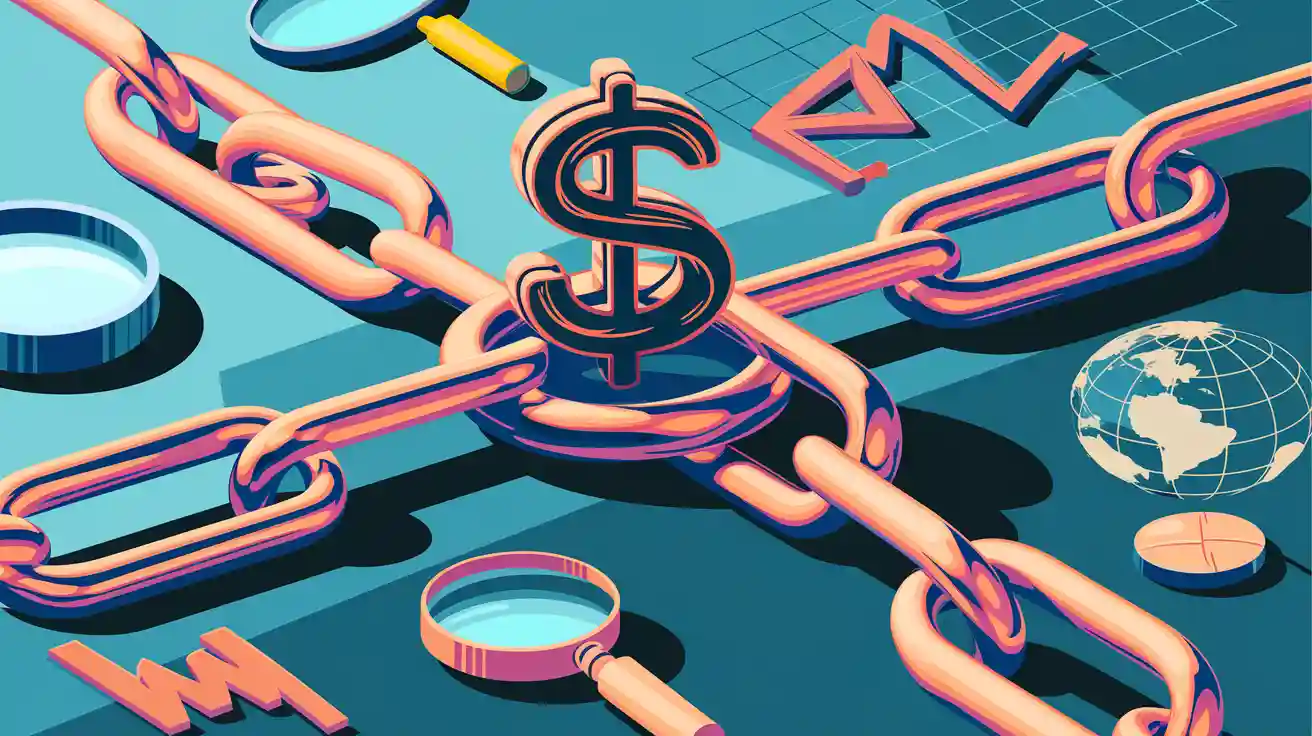Are Paid Backlinks Worth the Investment for SEO

You might think paying for backlinks helps rankings fast. Paid backlinks can improve SEO quickly, but they are risky. Google punishes tricky methods like this. Over 53% of sites punished for bad links used paid ones. Also, 27% of these sites lost links or got penalties within three months after a Google update. Fixing these problems can take months or might never work. Following Google's rules and using honest methods is key for lasting success.
Key Takeaways
Paid backlinks can help your SEO fast, but they are risky. Google punishes websites that misuse paid links.
Focus on good links, not many weak ones. A few strong links from trusted websites work better.
Follow Google's rules to avoid trouble. Honest methods, like writing guest posts, protect your site's image.
Buying good backlinks can save time and boost your site's trust. Pick reliable companies for long-term results.
Try safer options instead of paid links. Make great content or use digital PR to earn links naturally.
What Are Paid Backlinks?
Definition of Paid Backlinks
Paid backlinks are links you pay for to improve your site's ranking. These links tell search engines your content is useful and reliable. Unlike organic backlinks, which come from good content and outreach, paid ones involve money.
Note: Paid backlinks may boost rankings fast but are risky. Google warns against buying links to cheat rankings. Breaking their rules can lead to penalties.
Here’s a simple breakdown of paid backlinks and their effects:
Aspect | Description |
|---|---|
Definition | Paid backlinks are bought to help websites rank higher in search results. |
Impact on SEO | They might raise rankings quickly but can cause penalties if Google finds them. |
Google's Guidelines | Buying links to improve rankings breaks Google's rules and can result in serious penalties. |
Detection | Google is skilled at spotting fake link patterns, and sites using them may face penalties. |
Ethical Practices | Using honest backlink methods is important to protect your site's reputation and rankings. |
How Paid Backlinks Work in SEO
Backlinks are important for SEO because they show trust to search engines. When you buy paid backlinks, you’re paying for another site to vouch for yours. These links can bring visitors and improve rankings. But search engines treat paid links differently than organic backlinks.
Here’s how paid backlinks work in SEO:
The number and quality of backlinks affect your ranking.
Paid backlinks are bought, unlike organic ones earned through good content.
If paid links aren’t disclosed, they can lead to penalties like losing PageRank or being removed from search results.
Tip: Get backlinks from trusted websites. Avoid tricks that could hurt your site.
Benefits of Paid Link Building

Faster SEO Results
Paid link building helps improve SEO faster than organic methods. Buying backlinks gives you quick access to links from trusted websites. These links tell search engines your site is reliable, boosting rankings quickly.
Studies show link building works well for SEO:
Sites using paid links had better long-term results than those relying only on content or social media.
Google Analytics showed link building improved domain authority and rankings over 18 months.
If you want faster SEO progress, paid link building can help. But focus on getting high-quality links to avoid penalties.
Time-Saving Compared to Organic Efforts
Getting backlinks naturally takes a lot of time and work. You need great content, outreach, and patience for others to link to you. Paid link building skips this process by letting you buy links directly.
Buying good links saves weeks or months of effort. This is helpful if you're in a hurry or competing in a tough market. Instead of waiting for organic links, you can focus on other tasks while enjoying better SEO results.
Tip: Quality matters more than quantity. A few strong links are better than many weak ones.
Boost in Website Authority and Visibility
Paid link building improves your site's authority and visibility. Links from respected sites act like votes of confidence, making search engines trust your site more. This trust leads to higher rankings and more visitors.
Case studies show paid link building works:
Top-ranking pages get 5%-14.5% more "Do Follow" backlinks monthly.
An online store tripled its revenue in 90 days with paid links.
A blog saw a 105% rise in organic clicks in six months using quality backlinks.
Local businesses grew steadily with smart backlink strategies.
These examples prove high-quality links bring real benefits. Better authority boosts rankings and attracts more visitors and organic links over time.
Risks of Buying Backlinks

Google Penalties for Paid Links
Buying backlinks may seem like an easy way to rank higher. But it comes with big risks. Google watches for paid link schemes and punishes them. Penalties can lower your rankings or even remove your site from search results. For example, a web design company lost rankings after using paid links. This penalty hurt their business badly.
Google's system can spot fake link patterns. If flagged, fixing penalties can take months or years. One webmaster, Isaac, faced many penalties for bad links. Even after switching to guest posts, his site still struggled. This shows how hard it is to recover after being penalized.
The numbers are clear. In June 2023, 44,276 sites sold backlinks. By April 2024, only 31,388 of these sites were still active. This drop shows the dangers of paid link schemes. Only 6.6% of sites saw better traffic after buying backlinks. The risks often outweigh the rewards.
Tip: Don’t use paid link tricks. Build honest, high-quality backlinks instead.
Financial Loss from Low-Quality Links
Cheap backlinks can waste your money without helping your site. Many sellers promise quick results but give poor-quality links. These links often come from spammy sites and hurt your SEO. A study of 40,000 link-selling sites showed most had worse performance after Google updates. This proves low-quality links are risky.
Imagine spending lots of money on backlinks, only to lose rankings. Search engines care about quality, not quantity. Bad links can lead to penalties, wasting your money and chances to grow. Businesses using these tactics often spend more fixing the damage later.
To avoid losing money, check the quality of links before buying. Look for trusted sites that match your niche. Fewer, high-quality links are better than many weak ones.
Harm to Website Reputation and Trust
Your website’s reputation is very important. Bad backlinks can ruin it, making users and search engines lose trust. For example, a business using shady SEO tricks got deindexed by Google. This hurt their rankings and customer trust.
Another company lost rankings after using spammy links and keyword stuffing. These bad practices hurt their SEO and made visitors distrust their site. People don’t trust sites with irrelevant or spammy links.
Bad backlinks don’t just hurt rankings. They can damage your brand’s image, making it hard to gain or keep customers. To keep trust, use honest SEO methods and avoid harmful shortcuts.
Note: Protect your site’s reputation by choosing quality over quantity in backlinks.
Google's Guidelines on Paid Links
Google's View on Paid Link Building
Google strongly opposes buying links for SEO. They call it link spam and say it breaks their rules. Paid links can cause serious problems for your website. Google wants links to come from good content, not money.
Google says buying links is link spam. They warn: "Do not buy links." Breaking these rules can lower your rankings or remove your site from search results.
Following Google's rules keeps your site safe from penalties. Paid links might seem easy, but they often cause long-term damage.
Penalties for Breaking Rules
Breaking Google's rules can hurt your site's performance. Penalties target sites using tricks like paid links. Here are some examples:
Errors in structured data can remove special features and traffic.
Annoying ads can lower clicks and impressions.
False information in important topics can lead to harsh penalties.
Structured data mistakes can reduce traffic and visibility.
Pop-up ads can make users leave your site quickly.
Wrong facts in sensitive topics can hurt rankings badly.
These examples show why following Google's rules is important. Even small mistakes can harm your website.
Why Google's Rules Matter
Sticking to Google's rules helps your site stay penalty-free and visible. In 2024, a fashion store lost 60% of its traffic after breaking Google's rules with guest posts. This shows how bad the results can be.
Google warns against fake or tricky links. They say these can lead to penalties. Brands using paid links are often targeted by Google's updates. Honest link-building methods are the best way to succeed.
By following Google's rules, your site earns trust and ranks well. Avoid shortcuts and focus on making great content to get natural backlinks.
How to Buy Backlinks Safely
Do's and Don'ts of Paid Link Building
When buying backlinks, follow smart steps to avoid penalties. Here are some important tips:
Do's:
Get high-quality backlinks from trusted and strong websites.
Use different anchor texts to keep your links looking natural.
Check your backlinks often to ensure they stay useful and strong.
Try white-hat methods like guest posts or sponsorships for safe link building.
Don'ts:
Don’t use spammy methods that can hurt your rankings.
Never choose quantity over quality when buying backlinks.
Don’t forget to review your links. Fix bad ones quickly.
Avoid black-hat tricks like buying links from poor-quality sellers.
By following these tips, you can lower risks and improve your SEO safely.
Identifying Reputable Backlink Providers
Picking the right provider is key when buying backlinks. A good provider gives quality links and avoids harmful practices. Look for these traits:
Proven Track Record: Check reviews and examples showing they improve rankings.
Quality Over Quantity: Choose providers offering strong links, not many weak ones.
Customized Approach: Make sure they adjust their services to fit your needs.
Transparency and Communication: Pick providers who give updates and clear reports.
Ethical Practices: Avoid providers using tricks. Honest services keep your site safe.
Choosing a provider with these traits ensures your backlinks help your site long-term.
Alternatives to Buying Backlinks
If buying backlinks feels unsafe, try these better ways to boost SEO:
Broken Link Building: Find broken links on sites and suggest your content instead.
Digital PR Campaigns: Share newsworthy content to get media attention and backlinks.
Guest Blogging: Write helpful posts for other sites to earn backlinks.
Focus on Quality Content: Create great content that naturally gets links from trusted sites.
These methods help you earn backlinks honestly, following search engine rules and building trust over time.
Cost of Paid Backlinks
Factors That Affect Backlink Prices
The price of buying backlinks depends on many things. Knowing these can help you plan better for link building. Here are the main factors that change costs:
Website Performance: Strong websites pay less since they need fewer fixes.
Industry Competition: Tough fields like finance or tech cost more for links.
Urgency: Faster results mean higher costs for skilled help and tools.
Target Audience Scope: Local campaigns are cheaper than national or global ones.
Domain Authority (DA) and Relevance: High DA and niche links cost more because they’re valuable.
For instance, getting one backlink from a top site can cost $100 to $1,000+. Outreach campaigns might cost $1,000 to $5,000+ monthly, based on your goals.
Typical Costs in the Market
The cost of backlinks changes based on their type and quality. Here’s a simple cost guide:
Service | Price Range |
|---|---|
Backlink audit | $500–$5,000+ |
One high-quality backlink | $100–$1,000+ |
Outreach campaign | $1,000–$5,000+ per month |
$361.44 | |
Paid guest post | $77.80 |
Paid link | $83.00 |
These numbers show why careful budgeting is important. Cheaper options might not always mean better quality.
Balancing Cost and Quality for SEO
It’s important to balance cost and quality when buying backlinks. Good backlinks from trusted sites are better than many weak ones. Here’s how to do it:
Get backlinks from trusted sites with high domain authority. These links boost your site’s trust and rankings.
Keep adding relevant backlinks to grow traffic and visibility. Make sure they come from good sources to avoid penalties.
Use SEO tools to check your backlinks often. This helps you track their quality and keep a good balance.
Cheap backlinks might look good, but they can hurt your SEO later. Match your spending with your SEO goals to get the best results.
Paid backlinks can help your site rank higher on search engines. Good links from trusted sites make your site more visible. Following Google's rules keeps your site safe from penalties. Ethical methods, like guest posts or outreach, build trust and steady growth.
The table below shows why ethical paid backlinks are a smart choice:
Aspect | Description |
|---|---|
Strong, relevant links are key for SEO in tough markets. | |
Ethical Practices | Using honest link-building builds trust and lasting success. |
Compliance with Guidelines | Following Google’s rules boosts rankings and brings more visitors. |
Avoid quick fixes and use honest ways to gain trust. Ethical link-building keeps your site penalty-free and improves rankings over time.
FAQ
What are paid links, and how are they different from organic links?
Paid links are links you buy to improve SEO. Organic links are earned through good content and trust. Paid links involve money, while organic links come naturally.
Can paid links hurt my website's SEO?
Yes, paid links can harm your SEO if they break Google's rules. Google punishes sites using tricks like paid links. This can lower rankings or remove your site from search results.
How do you find high-quality paid links?
Good paid links come from trusted websites with strong authority. They should match your topic and use natural anchor text. Avoid links from spammy sites, as they can harm your SEO.
Are paid links a good investment for SEO?
Paid links can work if used carefully and ethically. They save time and improve rankings fast. But always focus on quality and follow Google's rules to avoid problems.
What are safer options instead of buying paid links?
Safer options include guest blogging, fixing broken links, and making great content. These methods help you get links naturally and avoid penalties.
See Also
Understanding The Dangers Of Purchasing Backlinks For SEO
The Role Of Backlinks In Enhancing Organic Search Rankings
Defining What Constitutes A High-Quality Backlink
Ten Varieties Of Backlinks That Enhance SEO And Credibility
Comparing DoFollow And NoFollow Links: Their Importance For Backlinks
